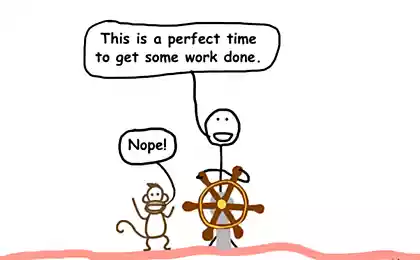204
The Dark Side of Perfectionism: How to Free Yourself from the Eternal Pursuit of Perfection

Do you think that everything should be perfected, and any deviation from the “perfect result” deprives you of the pleasure of the process? Do you think the slightest mistake can jeopardize your reputation or self-esteem? Then you may be familiar with perfectionism. At first glance, perfectionism is perceived as a positive quality: perseverance, striving for a high standard, attentiveness to detail. But in reality, too much idealism has a dark side. Sometimes it leads to anxiety, procrastination, depression and even a painful fear of “being not good enough.”
According to the American Psychological Association (APA), perfectionism is not the same type: it can manifest as a healthy desire to improve (so-called adaptive perfectionism) or, conversely, as a destructive strategy accompanied by constant self-criticism and relationship problems (maladaptive perfectionism). In this article, we will explore the psychological and social roots of perfectionism, its relationship to anxiety and procrastination, as well as a number of methods to learn how to be content with “good enough” without sacrificing quality of life.
The material is addressed to a wide audience who seeks to understand how to manage their own attitudes, get rid of exhausting thoughts about “perfection” and enjoy the process of achieving goals. We will try to consider the topic from a popular science point of view, but avoid specifying specific dates or events so that this review remains relevant for a long time.
Why Perfectionism Is So Attractive – And Dangerous
The desire for perfection has long been perceived as a “virtue”: a person who sets high standards, is able to work, disciplined, always tries to do everything “100%”. Moreover, in today’s society, where competition and idealized images (especially on social media) have become the norm, perfectionism may seem like a “normal response” to the demands of the world around us.
- Social roots: We are constantly bombarded with examples of “perfect” people – from glossy models to successful business heroes. Comparing oneself to these images creates an attitude of “I must conform.”
- Family and educational influence: Parents, teachers, who broadcast to the child that “good is not enough, it should be great”, contribute to the formation of the belief that the value of a person depends only on the highest results.
- Psychological background: Perfectionism is often a way to protect yourself from feelings of insecurity. “If I do everything perfectly, no one can criticize me” is the logic of many perfectionists.

Link to Anxiety and Procrastination
According to studies of a number of psychological schools, perfectionism is closely correlated with anxiety: people, afraid to make a mistake, all the time “lose” the worst-case scenario. And when the fear of error becomes stronger than the desire to move forward, the mechanism of “freeze” – procrastination – turns on. That is, a person postpones a task that he wants to perform perfectly, and as a result loses his strength and motivation for it.
- The eternal fear of criticism: A perfectionist fears that his work will be condemned if it is not flawless. As a result, the task is postponed in order to “prepare even better”, and this cycle can take weeks.
- Anxiety symptoms: rapid pulse, anxious thoughts, "stuck" syndrome on details. Sometimes this turns into obsessive checks (for example, editing the same paragraphs in a document).
- Emotional burnout: The constant feeling of “just a little more and I’ll do it perfectly” drains. A person may lose the ability to enjoy results because in his eyes they are “never perfect.”
The power of "good enough" and "reasonable standard"
The term “good enough” does not mean “bad enough.” It suggests that the task has been accomplished at a level that meets sound criteria, without wasting excessive resources on achieving “absolute ideality.” The rejection of excessive perfectionism usually does not reduce the real quality of work, but significantly reduces time and nerves.
- A practical example: In business, when a product comes to market as an MVP ("minimum viable product"), it can be "good enough" to attract first-time users by getting feedback. Bringing a product “to perfection” in a closed laboratory is often the way to the fact that a competitor will have time to beat you.
- Psychological aspect: Learning to complete a project at a “reasonable point” instead of an endless “I’ll be managing trifles for another week” is the antidote to paralyzing perfectionism.

Methods to Free Yourself from Perfectionism
1. Rethink mistakes as part of learning
One of the fundamental ideas of cognitive behavioral therapy is that “mistakes are not always evil, but a way to learn.” Look at failures as feedback. Write down what you learned from the situation, and remember that without such “failures” no professional grows.
- Exercise: "Diary of Errors." Once a week, record what you didn’t do perfectly and what lessons you learned. Over time, you will see progress and the disappearance of the fear of error.
2. Set clear, realistic goals
Perfectionists often set too high a standard – “I have to learn a new programming language in a month.” It is logical that this provokes despair. Set SMART goals broken down into steps: measurable, achievable, specific, with deadlines.
- Example: “For two weeks, I will take a basic course, do a couple of trial tasks, then do a performance review before moving on. ?
3. Apply the “80 percent rule”
Sometimes it is known that 20% of the effort produces 80% of the result, and the remaining 80% of the effort goes to “polishing”, which is not always worth the time spent. Try to complete a task when you’re sure it’s done “good enough,” and evaluate whether the remaining edits are critical.
- Attention: It's not a call to "get it over your sleeves," it's a way of realizing that sometimes an extra detail won't produce a proportionate improvement.
4. Delegation and collaboration
The perfectionist tends to pull everything on himself, because “no one will make it perfect.” But, learning to trust colleagues and partners, you will save the resource, and at the same time get a fresh look at the task.
- How to start: Start with small errands where a possible mistake is not catastrophic. Explain what is important to you, but give freedom to the performer.
5. Keep the work-rest balance
Immersion in excess “super quality” is easier if you spend 14 hours a day doing one task. However, recycling inevitably leads to a decrease in efficiency and an increase in self-criticism. A healthy schedule (including sleep, physical activity, leisure) allows you to assess work soberly, without going to extremes.
6. Practice “allowing yourself to be imperfect”
For some people who are used to “only 10 out of 10,” that sounds scary. But small experiments — like going outside without a perfectly ironed shirt, putting out a draft version of a creative project — can show that “the world will not collapse,” and others can react even more warmly to see your humanity.
7. If necessary, consult a psychologist.
Sometimes the roots of perfectionism go deep into self-esteem and relationships with parents, forming as a defense mechanism. If you feel that perfectionism destroys your personal life and causes chronic anxiety, working with a psychologist or therapist can change your internal attitudes and teach you healthy strategies to respond to incompleteness.
Conclusion
Perfectionism, it would seem, makes us more diligent, responsible, but in its extreme form it turns into a brake that prevents completion of affairs, disturbs mental balance and worsens relationships with others. Its dark side is the endless pursuit of an illusory ideal, fear of judgment, and paralyzing procrastination.
According to various psychological studies, an important step towards liberation from pathological perfectionism is the recognition that "good enough" can bring no less positive results than "absolute perfection." Mistakes, shortcomings and gradual improvement are an organic part of the development process, without which no field of activity can do.
The “good enough” approach not only makes life easier, but also promotes healthier relationships – both with oneself and with the world. And, most importantly, teaches you to enjoy the process instead of endless dissatisfaction with yourself. After all, the true quality of life is not eternal tension, but the ability to combine the desire for growth with mercy for one’s own human nature.
The story of one discovery: how chance led to a scientific breakthrough
Great ideas from the ancient world that we still use























